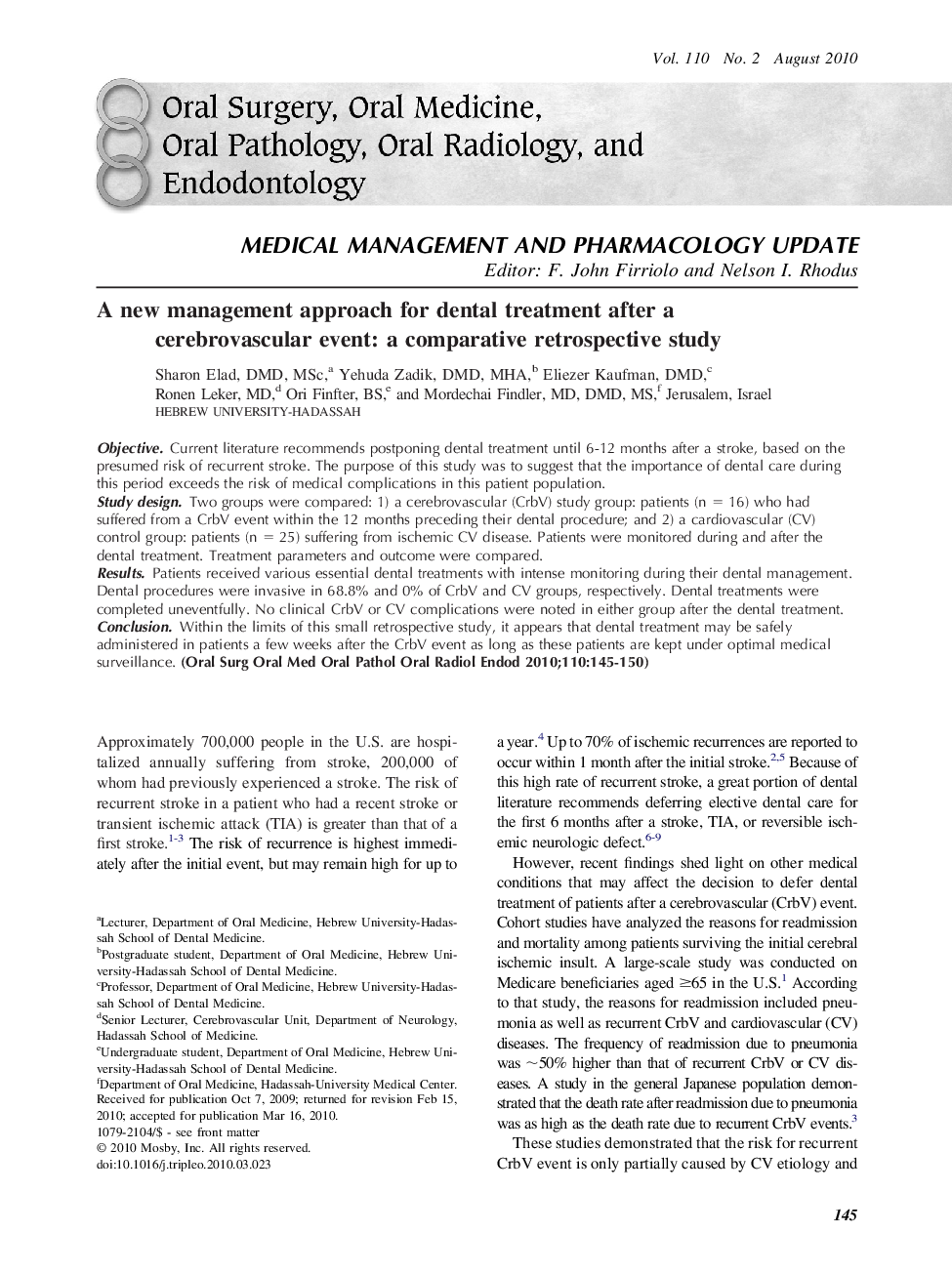| Article ID | Journal | Published Year | Pages | File Type |
|---|---|---|---|---|
| 3167488 | Oral Surgery, Oral Medicine, Oral Pathology, Oral Radiology, and Endodontology | 2010 | 6 Pages |
ObjectiveCurrent literature recommends postponing dental treatment until 6-12 months after a stroke, based on the presumed risk of recurrent stroke. The purpose of this study was to suggest that the importance of dental care during this period exceeds the risk of medical complications in this patient population.Study designTwo groups were compared: 1) a cerebrovascular (CrbV) study group: patients (n = 16) who had suffered from a CrbV event within the 12 months preceding their dental procedure; and 2) a cardiovascular (CV) control group: patients (n = 25) suffering from ischemic CV disease. Patients were monitored during and after the dental treatment. Treatment parameters and outcome were compared.ResultsPatients received various essential dental treatments with intense monitoring during their dental management. Dental procedures were invasive in 68.8% and 0% of CrbV and CV groups, respectively. Dental treatments were completed uneventfully. No clinical CrbV or CV complications were noted in either group after the dental treatment.ConclusionWithin the limits of this small retrospective study, it appears that dental treatment may be safely administered in patients a few weeks after the CrbV event as long as these patients are kept under optimal medical surveillance.
